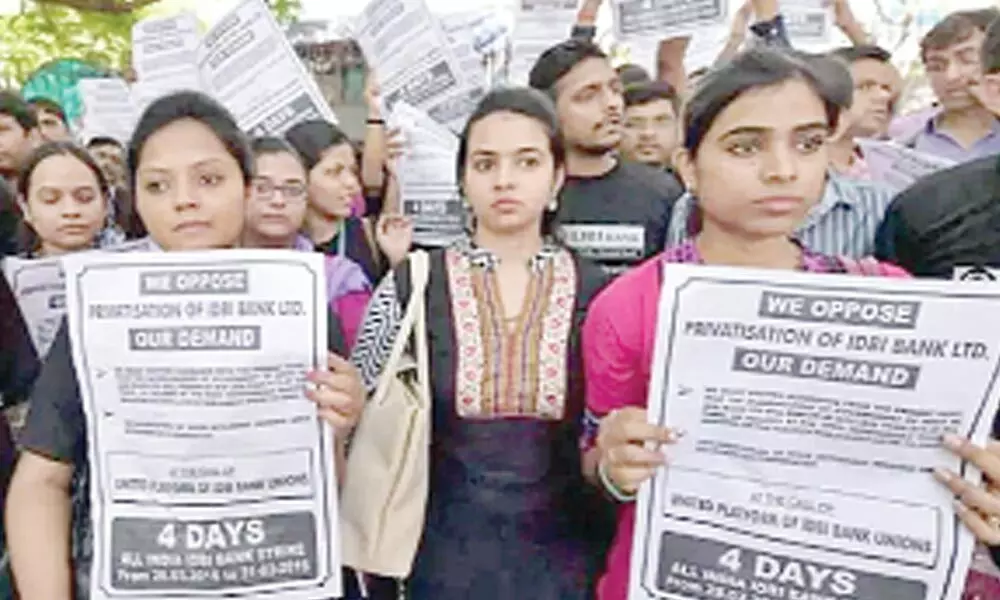Privatisation of banks not without its risks

Privatisation of banks not without its risks
Indian banking sector was earlier in private hands. However, during the 1970’s, the Indian government was of the opinion that banks favor the rich and that the poor must also be given access to cheap credit
Indian banking sector was earlier in private hands. However, during the 1970's, the Indian government was of the opinion that banks favor the rich and that the poor must also be given access to cheap credit. With this view, several banks were nationalised. With Finance Minister Nirmala Sitharaman's announcement of bank privatisation, all eyes are on public sector banks. The past history of private sector banks tells the failure. Before 1969, all banks, except the SBI, were in the private sector. Between 1947 and 1969, 559 banks failed.
The government is in the process of merging 13 banks into five banks. Merger of banks is not a simple exercise as there are several factors and each bank has a character of its own. Public sector banks are created out of public money. These entities are therefore duty bound to extend all types of services to customers across categories. No doubt, merger of one weak bank with strong one or merger of two weak banks is said to be the faster and less costly way to improve profitability. Managing the merged entity by the management teams drawn from two different banks is also a difficult task improving the quality of management is yet another challenge for banks.
There is every danger of merger derailing the steady improvement in the health of Indian banking system that has taken place consequent to banking sector reforms. Our former RBI governor Raghuram Rajan held that privatisation is not a panacea for the ills of the banking sector unless accompanied by reforms in banking regulation. People today believe in public sector banks and do not prefer to deposit their savings in private sector Banks. PSBs usually work on social welfare while the motive of private sector banks is generation of profit.
Privatisation of PSUs would push the country back into the capitalism of the 19th century with all its social evils such as inequality of income and wealth, mass unemployment and exploitation of natural resources. Today, PSBs act as an instrument for social justice as they execute many welfare policies like financial inclusion, farm loan waiver etc.
One needs to ponder over the questions viz Will government not face difficulty in providing low-cost financial services to rural and poor sections of society? Will Private sector banks be able to share the government's social responsibilities? Will private banks be able to extend all types of services to customers across categories which is today the root purpose of PSBs? Will Bank privatization, without strengthening regulatory controls and improving governance, will able to prevent fraud or curtail undue exposure to risk ?
Vinod C Dixit, Ahmedabad















